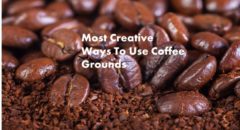
You’ve probably come across gluten-free cupcakes or freshly baked bread at some point in time. The food phrase is fast-approaching the frequency of “organic,” "natural,” and “green,” labels, but what does it really mean, and is this very restrictive diet something you should be following too?
- In 2008, manufacturers in the United States sold more than $2 billion worth of products with "gluten-free" claims.
- Grains that are naturally gluten-free—such as quinoa and millet—are now becoming increasingly popular.
- Books and websites claim that a gluten-free diet can help with weight loss, autism and dozens of other conditions.
- During a 21-day cleanse, Oprah Winfrey avoided gluten in her summer diet.
So, Should We All Be Avoiding Gluten?
Well, for most people, a gluten-free diet offers no benefits; in fact, it may even bring unwanted results, such as weight gain and nutritional deficiencies. Experts concur that gluten-free eating performs wonders for one group of people: those who have celiac disease.
What Is Gluten?
Gluten is a general name given to the storage proteins (prolamins) that is commonly found in most types of cereals like rye, wheat, and barley and in many form of bread. However all foods from the grain family doesn't contain gluten. Examples of grains that do not have gluten include wild rice, corn, buckwheat, millet, amaranth, quinoa, teff, oats, soybeans, and sunflower seeds.
Properties of Gluten:
- Helps make bread elastic and provides it with the chewy texture it has when eaten.
- Keeps the gases that are released during fermentation in the dough, so the bread is able to rise before it is baked.
- Firms up when it is cooked and, with the help of starch, helps ensure the bread maintains its proper shape.
- Also has an absorbent quality, which is why bread is capable of soaking up broth.
- It is often used by those on a vegetarian diet as an imitation meat.
- Some people suffer from a disease called celiac disease, which is an allergy to gluten. Individuals with celiac disease must eat foods that do not contain gluten in order to prevent illness.
Gluten-Free Diet: A gluten-free diet is essential for people who have celiac disease or dermatitis herpetiformis. It is possible to follow a gluten-free vegan diet, although you must be extra careful to ensure that your diet is nutritionally adequate. It is essential that you seek the advice of a sympathetic dietitian if you want to follow a vegan gluten-free diet. A gluten-free diet involves the complete avoidance of all foods made from or containing wheat, rye, barley and usually, oats.
What Is Celiac Disease?
Celiac disease is a digestive condition triggered by consumption of the protein gluten, which is primarily found in bread, pasta, cookies, pizza crust and many other foods containing wheat, barley or rye. People with celiac disease who eat foods containing gluten experience an immune reaction in their small intestines, causing damage to the inner surface of the small intestine and an inability to absorb certain nutrients.
Symptoms of Celiac disease (gluten sensitivity ): There may be no detectable symptoms of the immune response to gluten.
- Reaction begins to damage the intestines.
- Abdominal bloating or pain
- Diarrhea,
- Constipation,
- Gaseousness,
- Nausea with or without vomiting.
- Acid reflux in the esophagus, manifesting as heartburn, may be a potential symptom as well.
- People experience include fatigue, joint pains, mouth ulcers, bone pain.
- Abnormal menses in women, and infertility.
If you suspect that you may be suffering from Celiac disease or gluten sensitivity, contact your doctor to discuss your symptoms. It is very important to seek a proper medical diagnosis before avoiding all gluten-containing foods.
For more information on Celiac Disease, read: Is Celiac Disease A Threat For Blacks?









